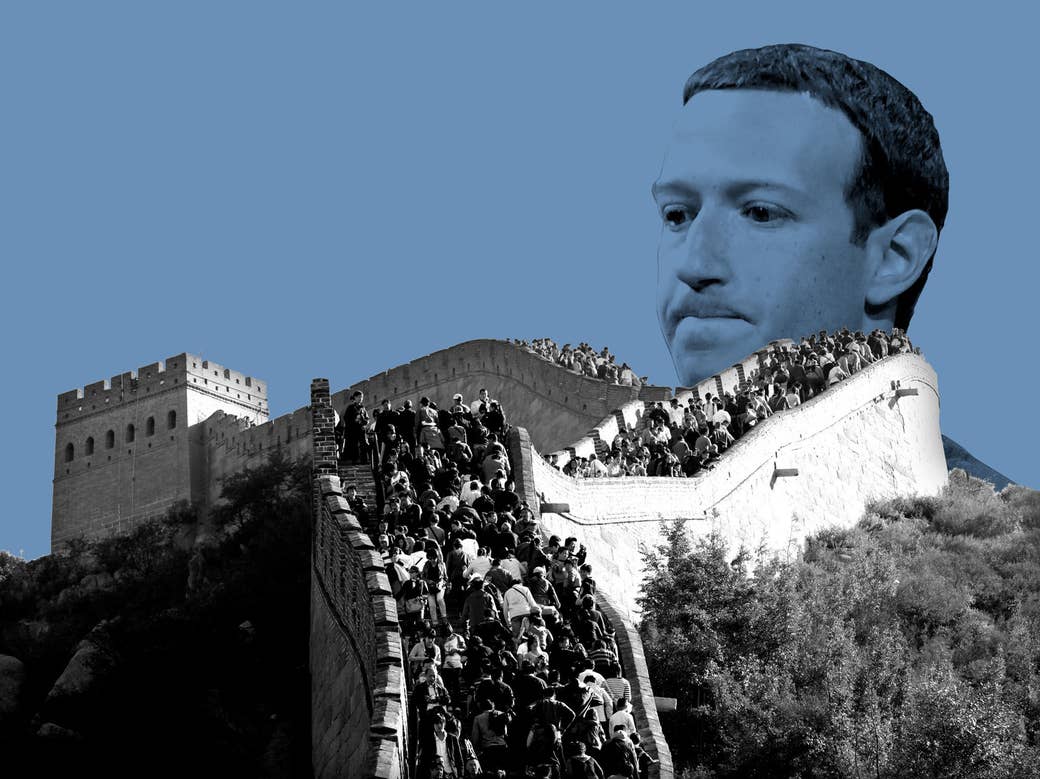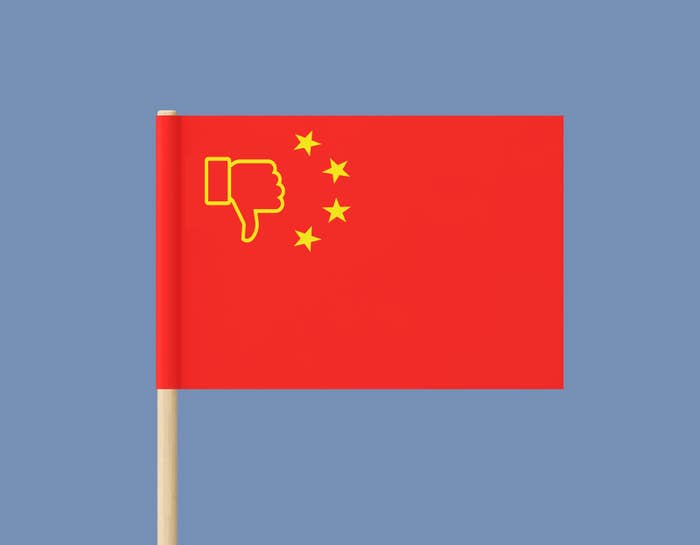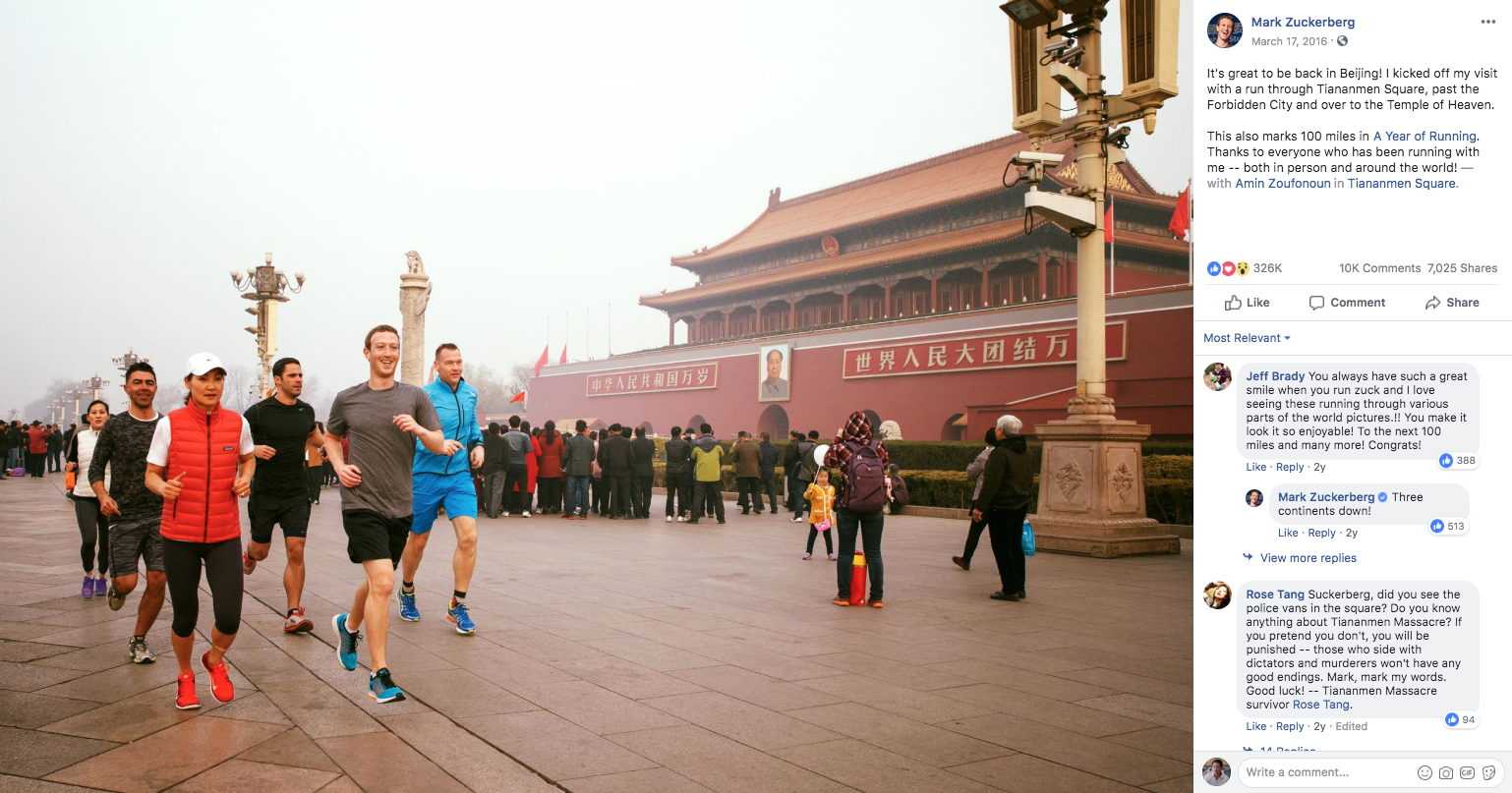
Facebook does not see any path forward in China, a senior source inside the company told BuzzFeed News on Wednesday after CEO Mark Zuckerberg announced plans to create a new “privacy-focused” communications platform.
In recent years, Zuckerberg and Facebook have courted Chinese officials with the hopes they’d lift the country’s ban on the social network, which began in 2009. With 1.4 billion people, China represents one of the last major frontiers Facebook has not conquered. The company — which has 2.7 billion users across all its services including Messenger, Instagram, WhatsApp, and its namesake social network — is quickly reaching a point of user saturation in most countries.
With investors questioning how the company plans to grow in future years, Facebook’s step back from China is a notable one. The source, who spoke on the condition of anonymity because they were not authorized to speak publicly, said that while the company would like to enable more cross-border communication, it doesn’t see any way to run services in China or place critical operations infrastructure there because of the country's history.

“As we build our infrastructure around the world, we've chosen not to build data centers in countries that have a track record of violating human rights like privacy or freedom of expression,” Zuckerberg wrote in his note on Wednesday. “If we build data centers and store sensitive data in these countries, rather than just caching non-sensitive data, it could make it easier for those governments to take people's information.”
A Facebook spokesperson declined to comment for this story.
Facebook’s quest to enter China is a long-running one. In 2016, the New York Times reported that the company was experimenting with a special censorship tool that could suppress posts, a move to curry favor with governments that didn’t favor free expression. Over the years, Zuckerberg has learned Mandarin, joined the advisory board at Tsinghua University's business school, and met with President Xi Jinping on several occasions. In March 2016, he even shared a photo of a morning run through a smoggy Tiananmen Square on Facebook, drawing condemnation from critics who thought he was making light of China’s censorship on the matter and providing internet users with plenty of memeable material. Last year Facebook also briefly won approval to open a subsidiary in the eastern province of Zhejiang.
In his note, Zuckerberg said that “upholding this principle” on where the company locates its data servers may get Facebook’s services blocked in some countries or prevent it from entering others "anytime soon." Russia is also currently attempting to enforce a law in which internet companies with data on Russian citizens must store data on local servers with the country’s borders.

“That's a tradeoff we're willing to make,” he wrote. “We do not believe storing people's data in some countries is a secure enough foundation to build such important internet infrastructure on.”
Zuckerberg’s post on his vision for Facebook is thin on specific details, but it does propose a future in which his company will build tools to help users communicate privately, using secure, end-to-end encrypted messaging and ephemeral stories. It marked a significant shift in moving the company away from its past “open and connected” mantra and toward one where it says it will put privacy first, something it has made promises about in the past and failed to deliver.
Want us to report on more stories like this? Join us as a BuzzFeed News member.
The source told BuzzFeed News that many employees felt it was critical for Facebook’s mission to enter China, and that it’s one of the most frequent questions asked during employee Q&A sessions. This person also noted that many people internally will likely be unhappy with Zuckerberg’s hard line on data storage.
Still, the source left the possibility open, making it clear that the company has no plans “at the present time” to go into China. Zuckerberg tried hard, they said, but there’s no way to do this in “the foreseeable future.”
